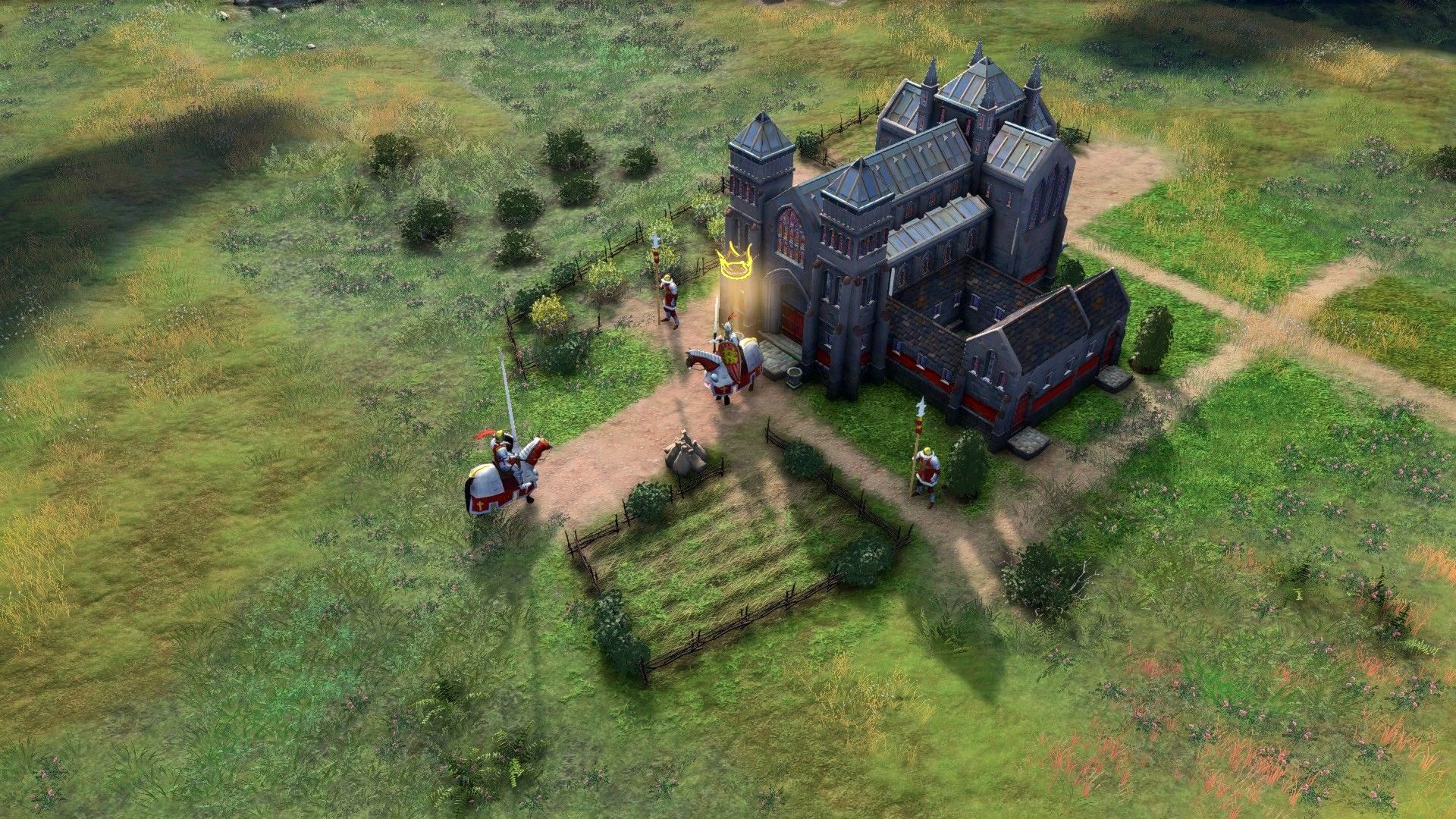A Beginner's Scouting Guide for Age of Empires 4: Fundamentals and Tactical Insights
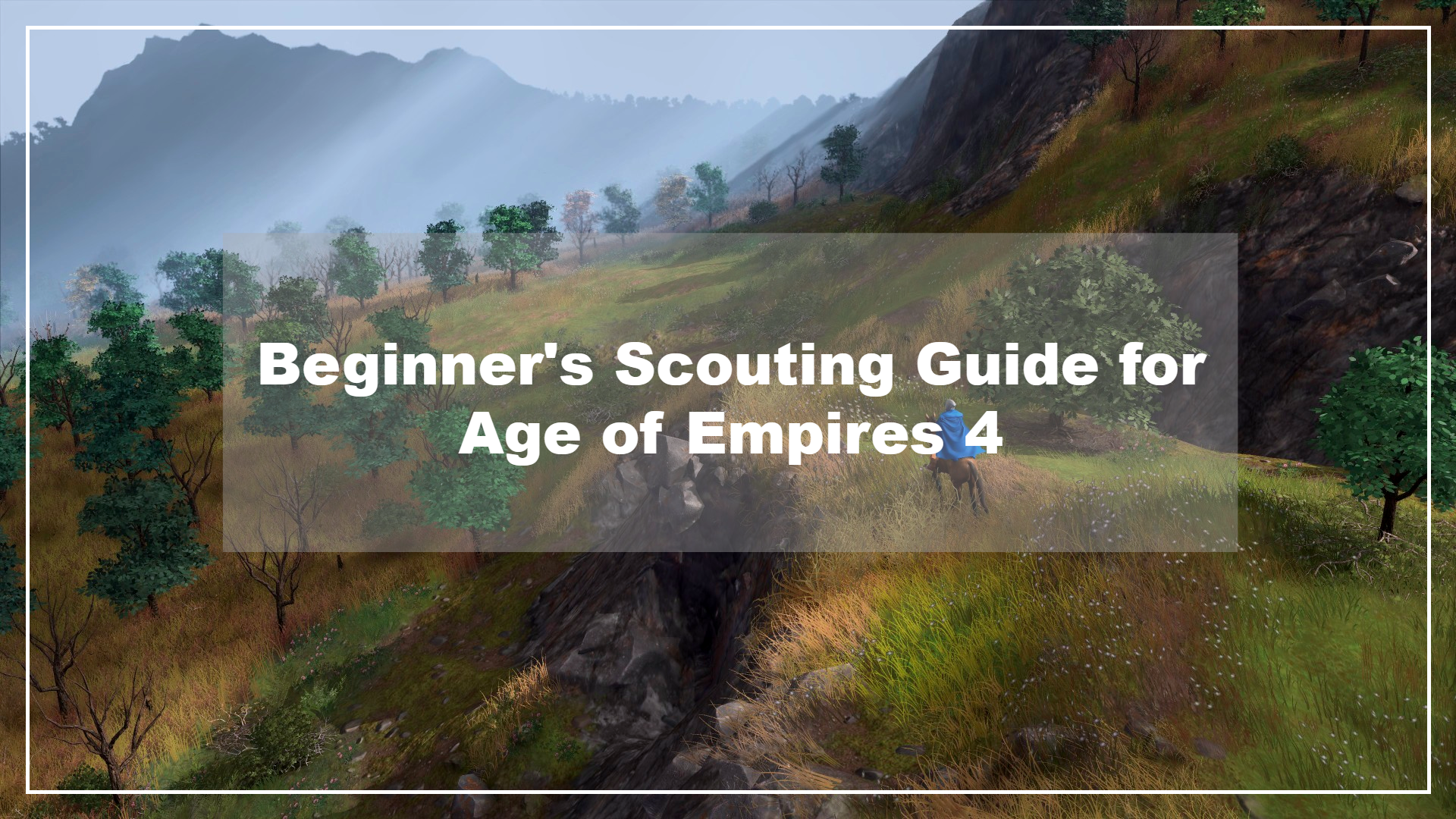
Mastering the art of Scouting is a skill that can make the difference between victory and defeat. As the great empires of history clash on the battlefield, the ability to gather crucial information, explore uncharted territories, and anticipate the enemy's moves becomes paramount. In this scouting guide, we will delve into the fundamentals of scouting and provide you with invaluable tips, allowing you to gain a strategic edge and shape the course of history.
Drawing inspiration from the historical tapestry woven by Age of Empires 4, scouting serves as the metaphorical "explorer's compass" that guides you through unexplored territories, uncovering hidden resources, strategic chokepoints, and potential threats lurking in the shadows. It is through the eyes of your scouts that you gain a profound understanding of the terrain, transforming it into a canvas for your empire's rise to glory.
Embarking on your scouting journey, you will learn the art of efficient exploration. With a keen eye and a well-trained unit of scouts, you will navigate the landscape, unraveling its mysteries and seizing opportunities that lie hidden in the fog of war. But scouting is not a mere act of sightseeing; it is a tactical endeavor that requires precision, resourcefulness, and adaptability.
Remember, in this age of war and conquest, knowledge is power, and the art of scouting holds the key to dominance on the battlefield.
Fundamentals of Scouting

To delve into the topic of Scouting, we must first shine the spotlight on our key player: The Scout.
The Scout is a light and fast cavalry unit that has exceptional visual range, making it ideal for revealing unexplored parts of the map and spying on opponents. While they can attack, their low damage makes them little more than an annoyance to stronger units. Since they are always out exploring, they’ll usually be the first to find wild animals, and they deal enough damage against these to make them excellent hunters. You will start most games with at least one Scout, and you should try your best to keep it alive, because early in a match your resources and production queues are much better dedicated to villagers, also that your Scout is a key part in your strategy.
Tactics and Usage
From the moment a game begins, your Scouts should never be idle. Between scouting the area for resources, searching out your opponent, or hunting wildlife, there is always something they can be doing. As you prepare for battle it can also be beneficial to have one or two Scouts as part of your main army; their huge sight range will allow you to spot enemies sooner, making sure you are never caught off guard.
Furthermore, Scouts possess unique capabilities that grant them the ability to perceive hidden details. They are the only units in the game that can see into Stealth Forests, which means that not only can they help reveal the area around a forest to make it easier for you to set up your own ambush, but they can also ensure that you are not walking into an enemy trap.
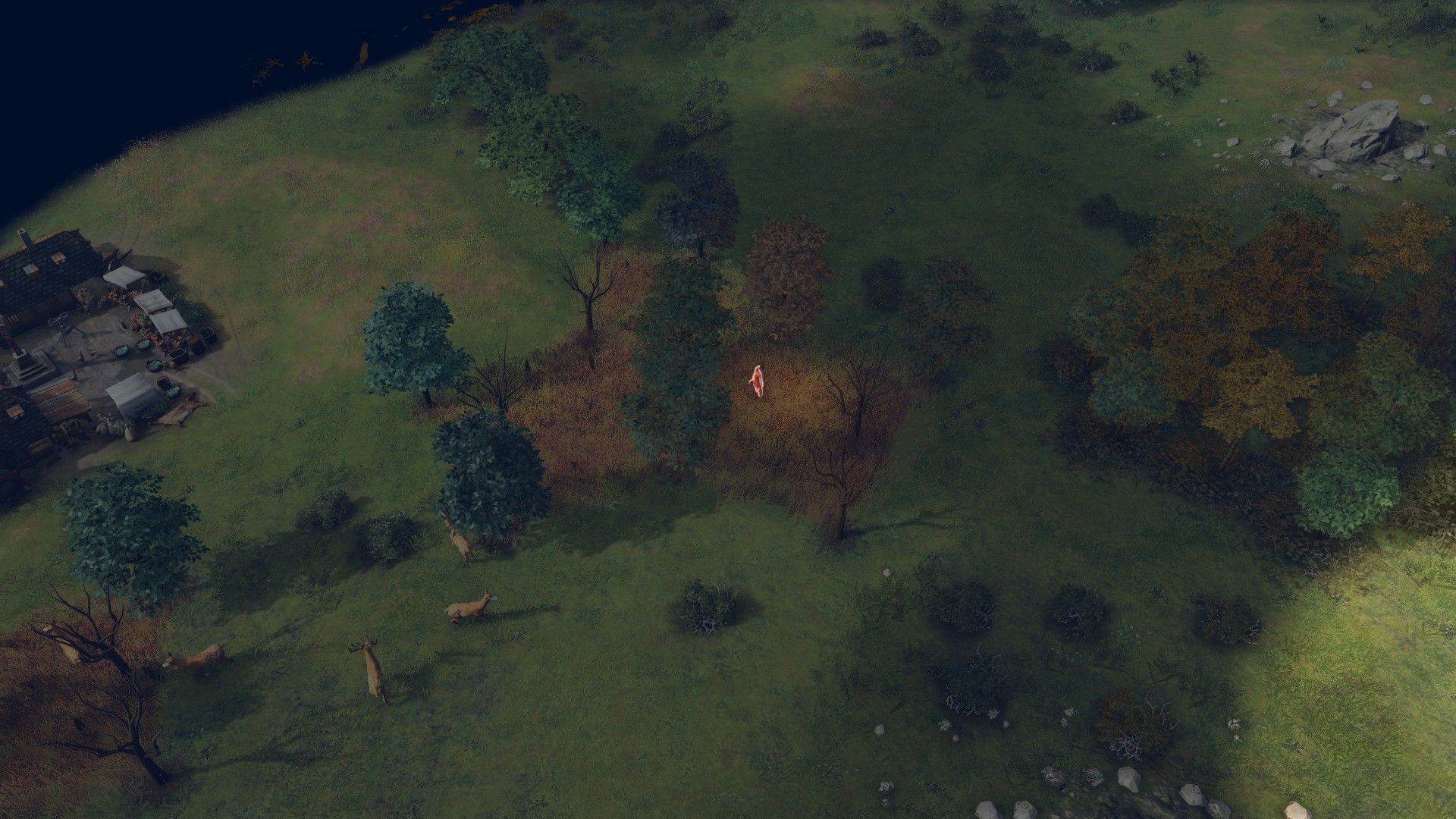
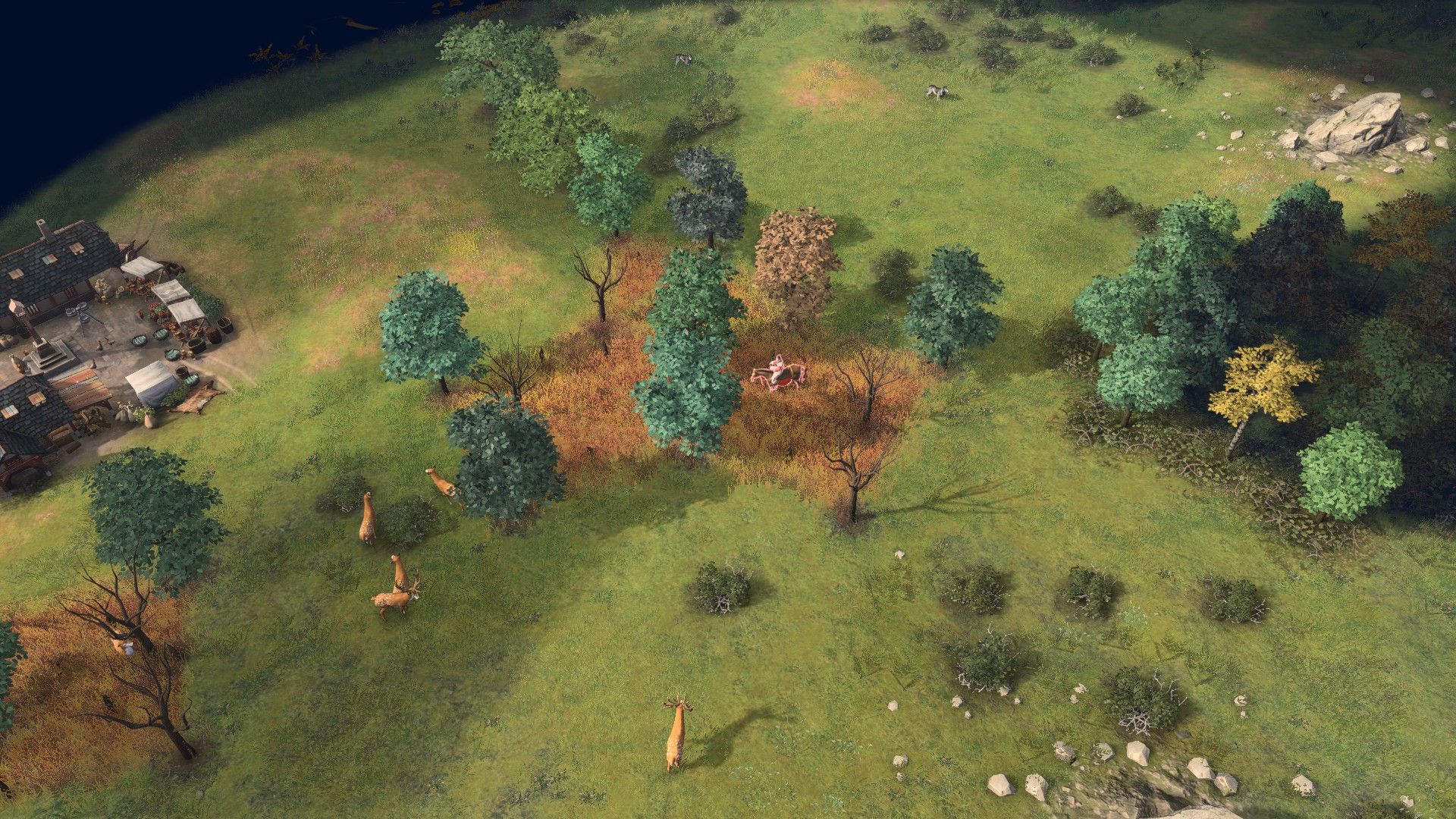
A scout's line of sight in a Stealth Forest compared to other units.
Additionally, Scouts possess a remarkable talent for gaining a higher vantage point, allowing them to see elevated areas even when positioned at lower ground levels. These extraordinary skills make Scouts indispensable for uncovering concealed strategies and gaining a tactical advantage on the battlefield.

Importance of Scouting
The importance of scouting cannot be overstated. From the moment you set foot on the map, the act of scouting becomes your gateway to success. By sending forth your scouts, you unlock a realm of vital information that can shape your strategy and provide a crucial advantage over your adversaries.
Unveiling the Map
"Exploring the map is not a luxury; it is a necessity".
From the very beginning of each match, it is crucial to make scouting a top priority, as it unveils a wealth of vital information by peeling back the shroud of the fog of war. This initial exploration sets the stage for your empire's growth and success.
As your scout venture into the uncharted territories surrounding your starting location, a treasure trove of knowledge awaits. The map slowly unveils the distribution of key resources that will fuel your civilization's development. Dense forests, shimmering mines, and bountiful hunting grounds are revealed, each offering valuable commodities essential for your empire's prosperity. By identifying these resource-rich areas early on, you can strategically plan your expansion, ensuring your gatherers are efficiently assigned to harvest these vital resources.
But the map reveals more than just resources. It exposes potential settlement locations, guiding your decision-making in establishing new Town Centers and expanding your empire. As your scouts traverse the landscape, keep a watchful eye for favorable spots that offer access to abundant resources, defensible positions, and proximity to strategic locations. These optimal settlement locations provide a solid foundation for your civilization's growth, granting you control over crucial territories and resources.
Scouting also uncovers strategic chokepoints strategically scattered throughout the map. These narrow mountain passes, river crossings, or bridges can become decisive points that shape the flow of battles and influence the outcome of conflicts. By gaining control over these chokepoints, you can restrict enemy movement, defend your territories effectively, and gain a tactical advantage in both defensive and offensive operations.
In short, exploring the map is not merely an act of curiosity; it is a fundamental aspect of your empire's growth and success. The fog of war conceals both opportunities and dangers, and only through diligent scouting can you unveil the map's secrets.
Resource Gathering
Scouts are not particularly powerful units and should rarely, if ever, be used to engage in direct combat with enemies during the early phase of the game. However, they excel at herding sheep, which serves as an excellent source of food for your civilization. As you explore the map with your scouts, keep an eye out for sheep grazing in various areas. These fluffy creatures can be gathered by your scouts and led back to your town center, where they can be immediately put to use for food production.
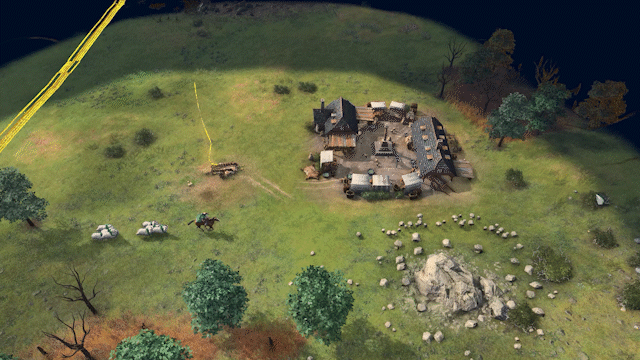
On the other hand, once you reach Age II you can acquire the Professional Scouts upgrade from a mill, allowing your scouts to carry corpses of any animals they kill on the back of their horse. While this requires a bit of micromanaging, being able to take advantage of the faster gathering rate from animals in the safety of your own base should not be overlooked.
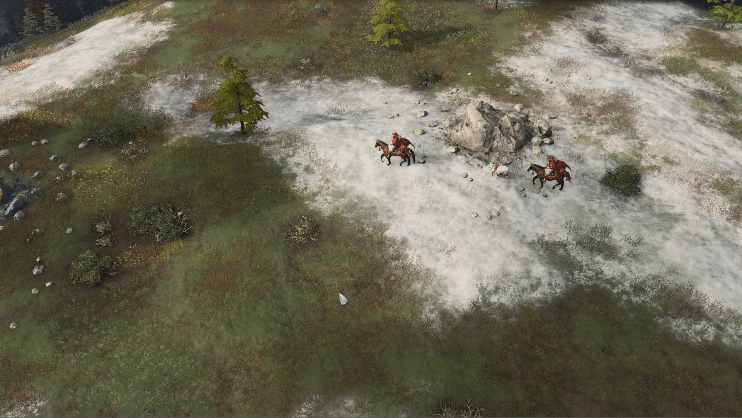
Remember, while scouting for resources, remain vigilant and cautious of enemy units. Prioritize the safety of your scouts and avoid unnecessary engagements that could jeopardize your scouting efforts.
Early Warning System
Scouting serves as your vigilant eyes and attentive ears on the expansive battlefield. As your scouts venture forth, exploring the map and peeling back the fog of war, they bestow upon you a vital early warning system that can mean the difference between victory and defeat.
Through the act of thorough exploration, you gain a crucial ability: the detection of incoming threats and surprise attacks from rival civilizations. By extending your reach into unexplored territories, you uncover hidden enemy units, observe their military movements, and witness the development of their empires. This invaluable information serves as an early warning system, alerting you to potential dangers that lurk beyond the veil of uncertainty.
Armed with this advance knowledge, you are bestowed with a precious commodity: time. The early warning system provided by scouting grants you precious moments to react and adapt. It offers the opportunity to prepare defenses, reinforce vulnerable areas, and fortify your empire against potential onslaughts. With each passing second, your advantage grows as you strategize, counteract enemy maneuvers, and lay the groundwork for a formidable defense.
Furthermore, this early warning system allows you to study and understand the strategies employed by rival civilizations. By observing their settlement locations, military compositions, and resource allocation, you can deduce their intentions and anticipate their next moves. Armed with this knowledge, you can formulate counterstrategies, exploit weaknesses, and navigate the intricate dance of empire-building with precision.
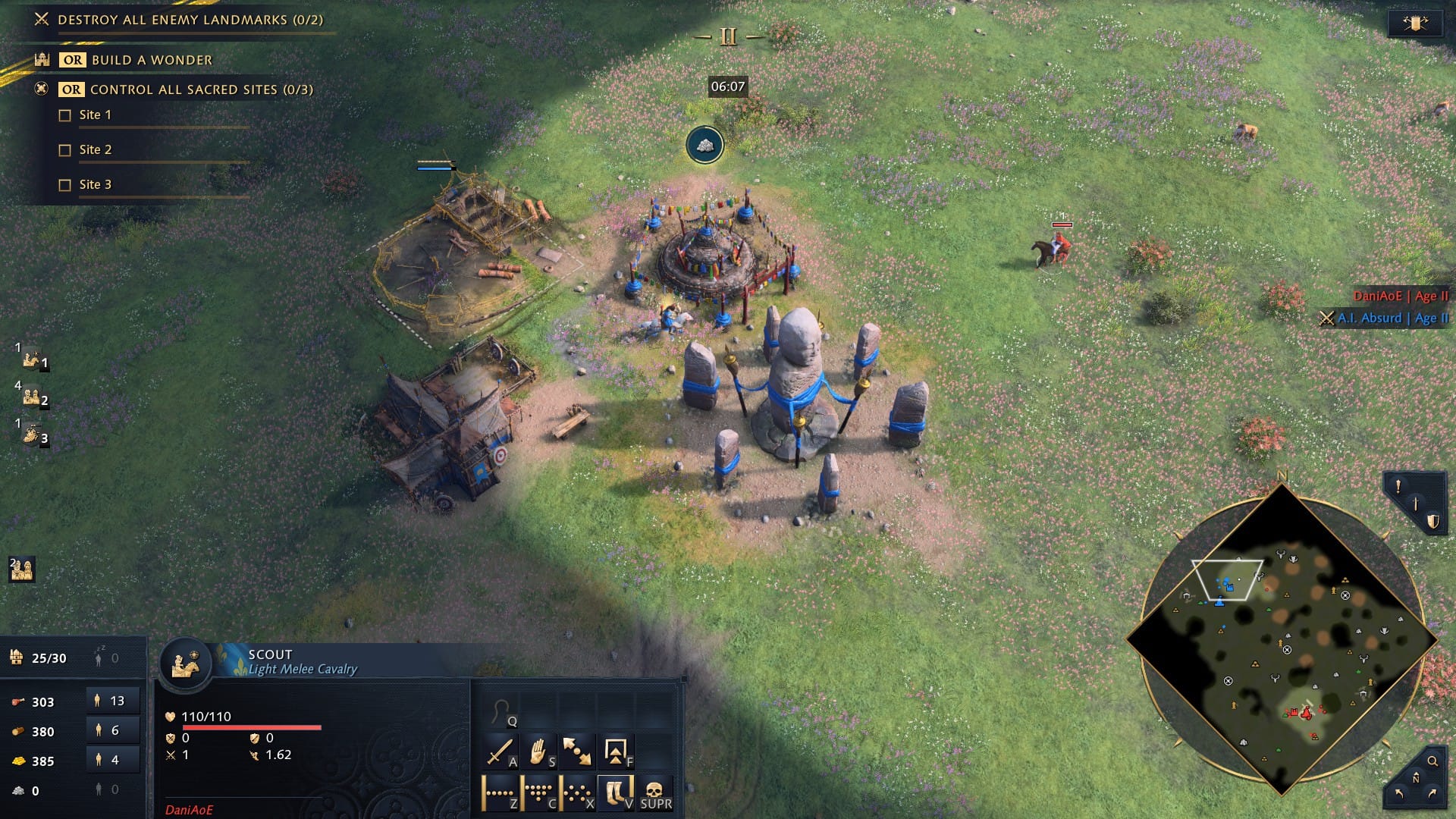
The ability to detect incoming threats and surprise attacks is not to be underestimated. It provides you with a critical edge, allowing you to stay one step ahead of your adversaries. With a well-established early warning system in place, you can thwart potential ambushes, neutralize surprise assaults, and maintain the upper hand in the ever-changing landscape of warfare.
Strategic Knowledge
"Exploration extends beyond uncovering the physical landscape; it grants you a window into the strategic knowledge of your opponents".
As your scouts venture forth and the fog of war dissipates, you gain valuable insights into the strategies and intentions of rival civilizations. By keenly observing the settlement locations of your adversaries, you can decipher their approach to expansion and resource management. Are they focusing on rapid expansion (2 or more TC) or fortifying a centralized stronghold (1 TC)? Such observations provide a glimpse into their overall strategy and guide your decision-making process.
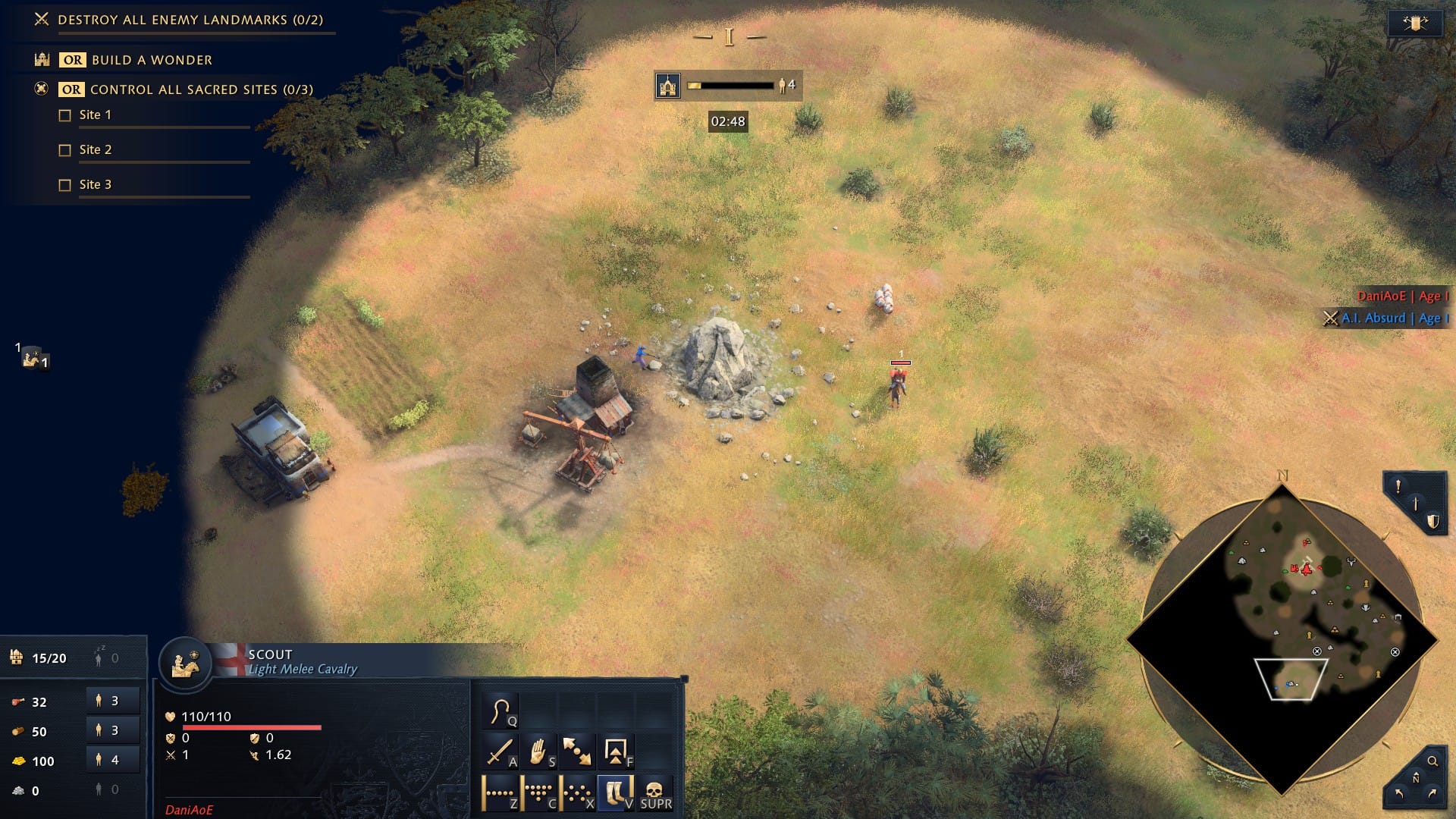
Military movements tell a tale of their own. Tracking the paths of enemy units gives you a sense of their offensive and defensive capabilities. Are they amassing armies near your borders or positioning forces in strategic chokepoints? Understanding their military intentions allows you to adapt your own plans accordingly, preparing defenses or launching preemptive strikes.
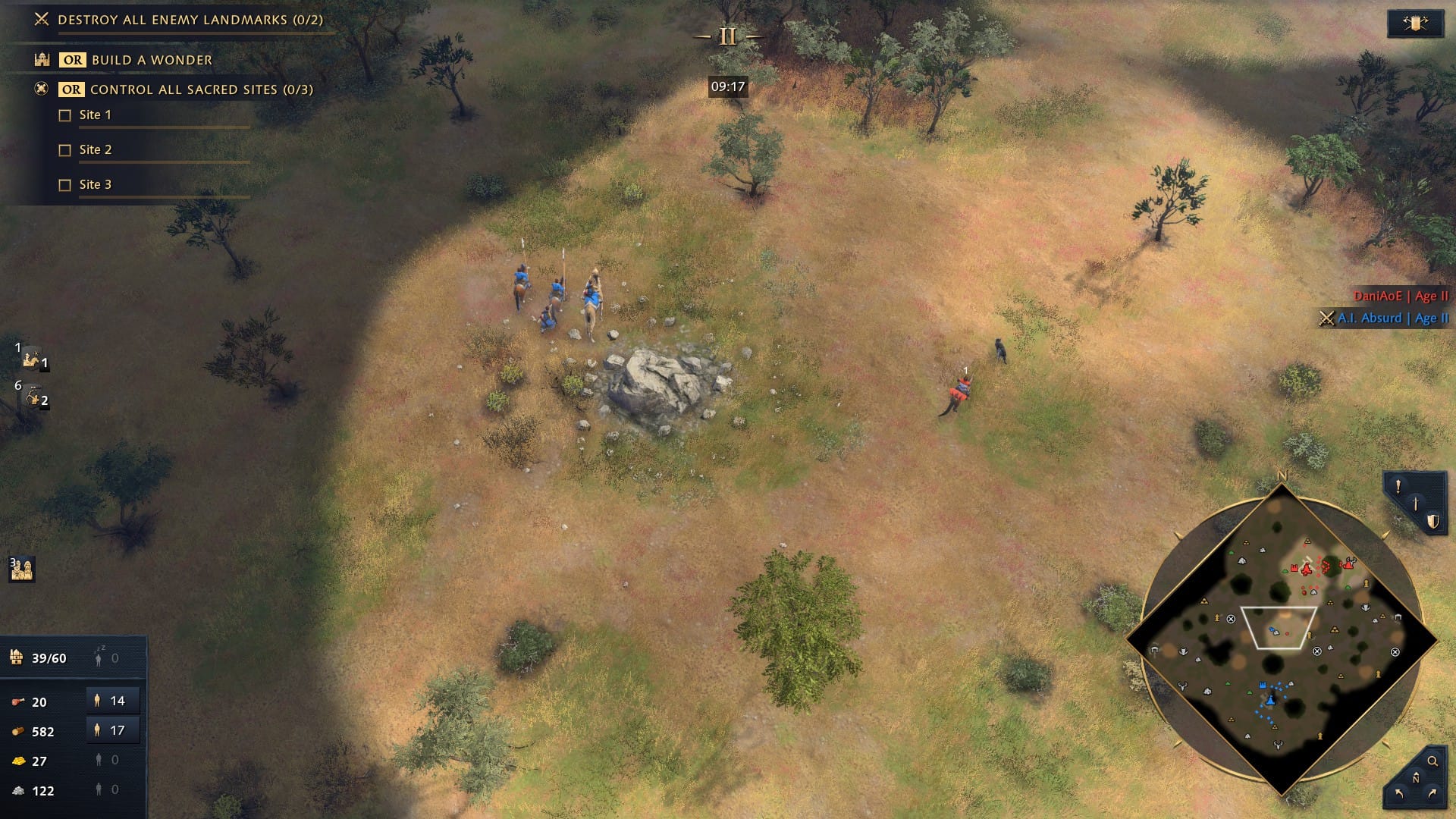
Moreover, exploration reveals the economic development of rival civilizations. Observing their resource allocation, technological advancements, and trade routes provides valuable clues about their priorities and potential vulnerabilities. It empowers you to make informed decisions about resource management and technological research.
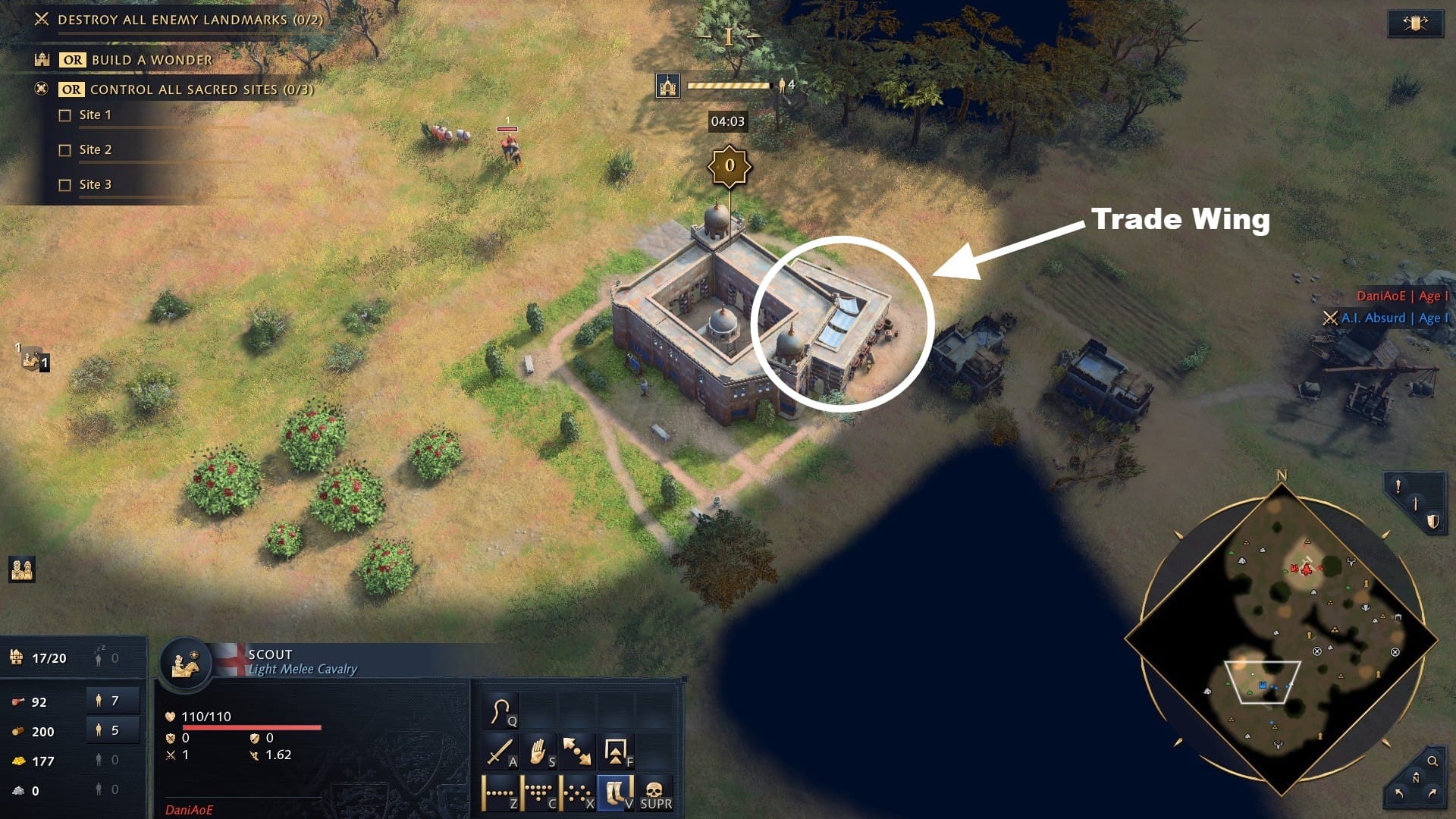
By assimilating this strategic knowledge, you gain a competitive edge. Armed with insights into the intentions and strategies of your opponents, you can adapt your own plans accordingly. Opportunities to exploit weaknesses arise, allowing you to launch calculated attacks or secure valuable resources before your rivals. Similarly, potential dangers can be averted as you proactively fortify defenses, anticipate enemy movements, or adjust your expansion plans.
Exploration, therefore, becomes not only a means to discover the map, but also a path to strategic intelligence. It opens the door to a deeper understanding of the dynamics of the game and the actions of your opponents. This knowledge allows you to navigate with precision and anticipation.
General Tips for Advanced Scouting
Gather Sheep Wisely
When searching for sheep, there's no need to get too close for them to start following you. Simply pass by at a reasonable distance, and they'll start tagging along. However, be cautious if an enemy Scout is nearby, as they might claim the fluffy creature if they are closer to it.
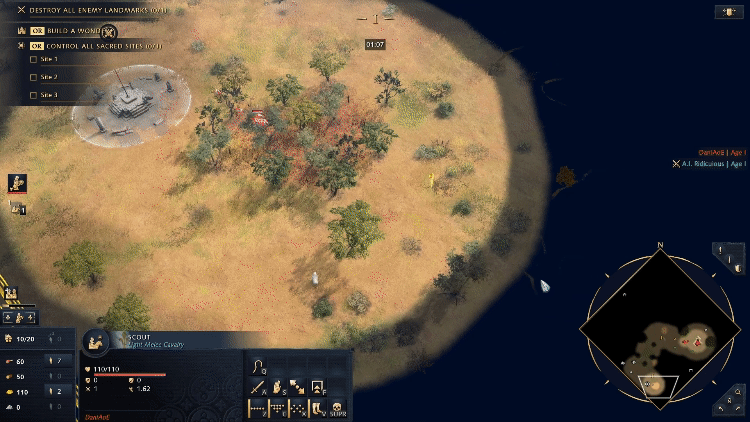
Sheep are Swift, When Used Wisely
Surprisingly, sheep are swift creatures when utilized appropriately. If you select a sheep and send it in a specific direction, it will move quite slowly. However, if you direct the sheep towards a Scout (select the sheep and then right-click on the Scout), it will move rapidly towards it. The same applies if you send the sheep towards a building, preferably the Town Center or a mill.
Employ Waypoints
Sometimes, it's necessary to use waypoints with your Scouts to perform various tasks simultaneously. To create waypoints, simply press the SHIFT key and click when the Scout is selected. A yellow flag will appear if you're only moving or a red flag if you're attacking.
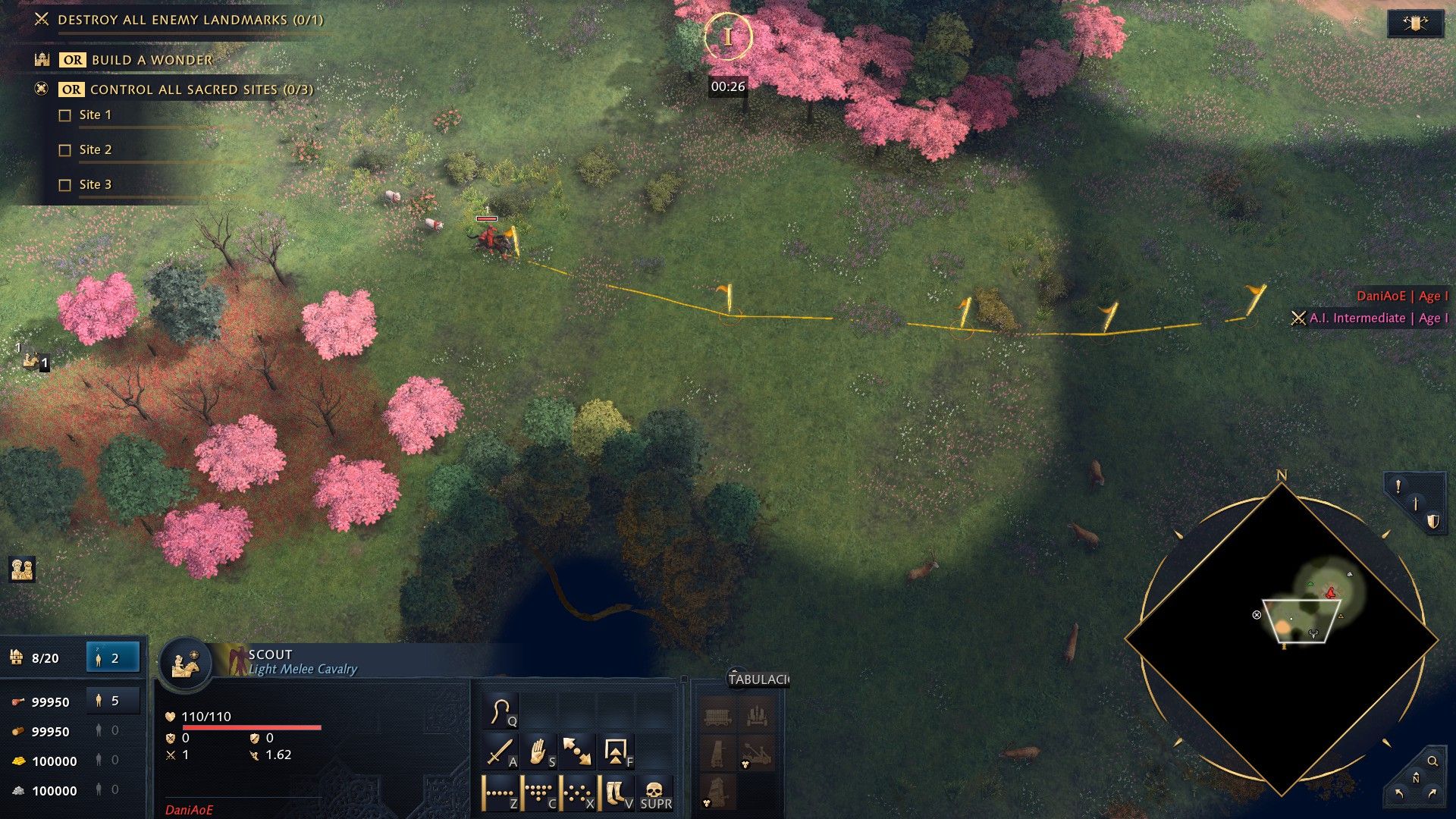
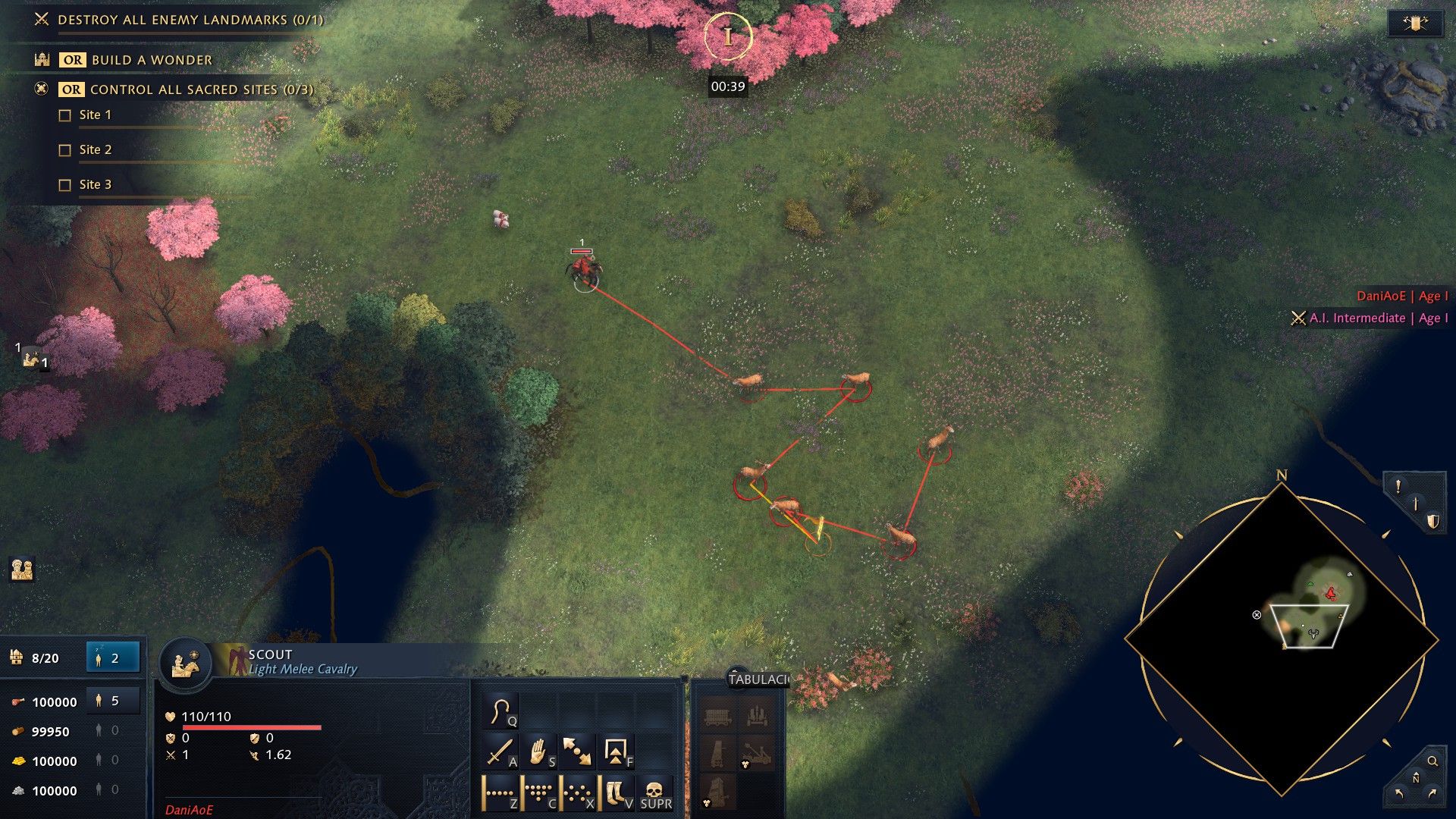
Pay Attention to the Scout's Whistle
Your Scout can provide information through a loud whistle, which only sounds when the Scout encounters an enemy Scout or stumbles upon the enemy base. If your Scout is attacked by the town center, you'll receive an attack alert. You can quickly navigate to your Scout by pressing the "Space" key, directing you to the latest event—in this case, your Scout. Alternatively, if the Scout is part of a control group, you can use it to rescue him from imminent danger.
Share your socuting results with your allies
Another important aspect is effective communication with your allies. Share the gathered information with your teammates to coordinate joint strategies and maximize the impact of your actions. Shared information can help identify enemy weaknesses and capitalize on strategic opportunities for a coordinated offensive.
Acknowledgments
Thank you for making it this far. If you enjoyed our content, feel free to share your thoughts in the comments. Your feedback is invaluable to us. If there's a specific topic you'd like us to cover, we're open to suggestions 😉.
If you want to contribute to the growth and development of Empire Wars: Age of Empires Blog, join our Empire Knights ⚔️ through our Tiers or make a contribution through a Donation❤️. Any help is welcome to keep our Empire standing and continue unlocking quality content. Thank you for being a fundamental part of this strategic adventure in Age of Empires!
